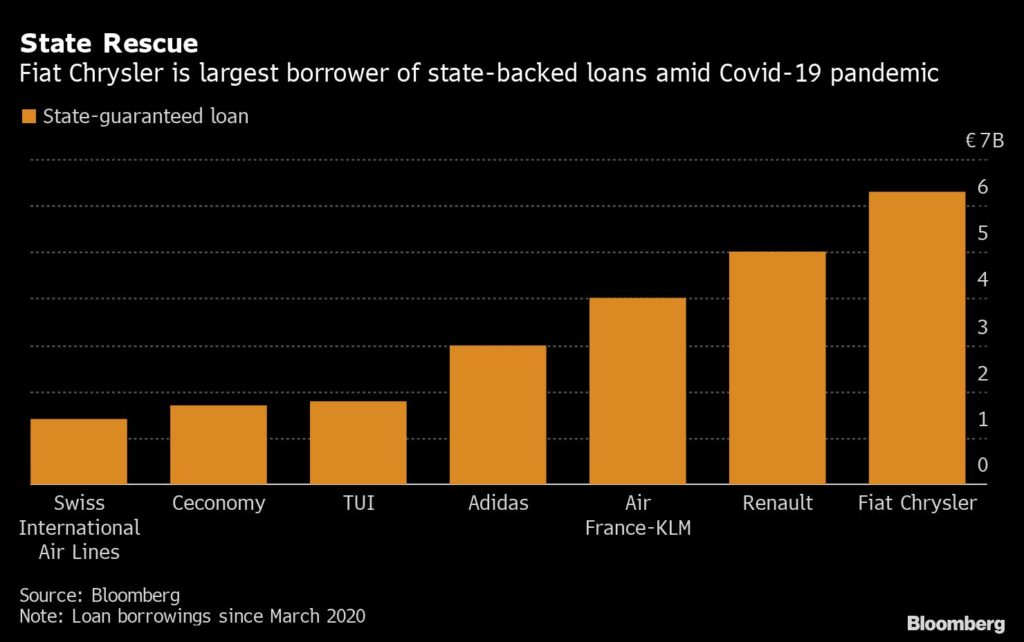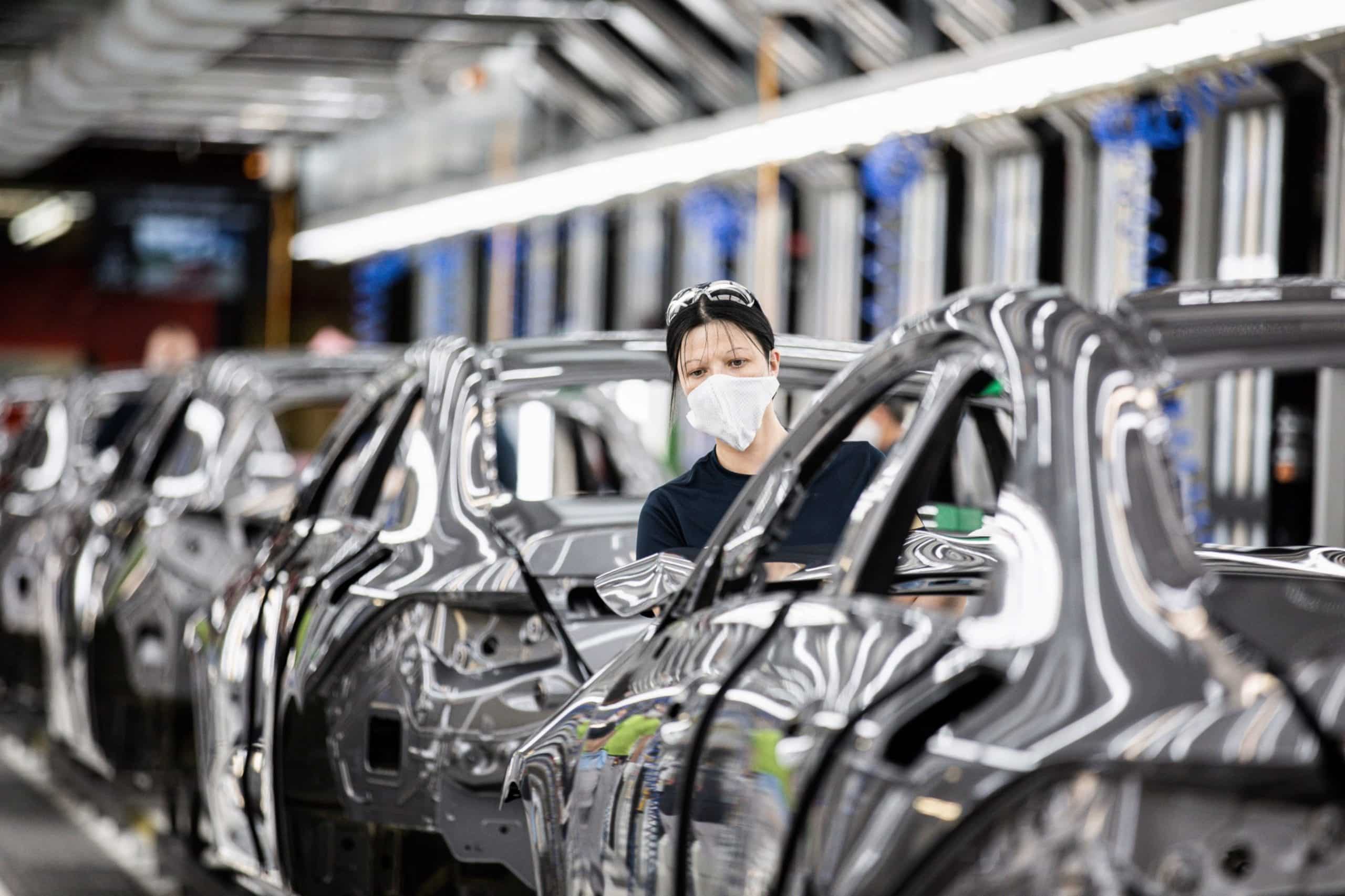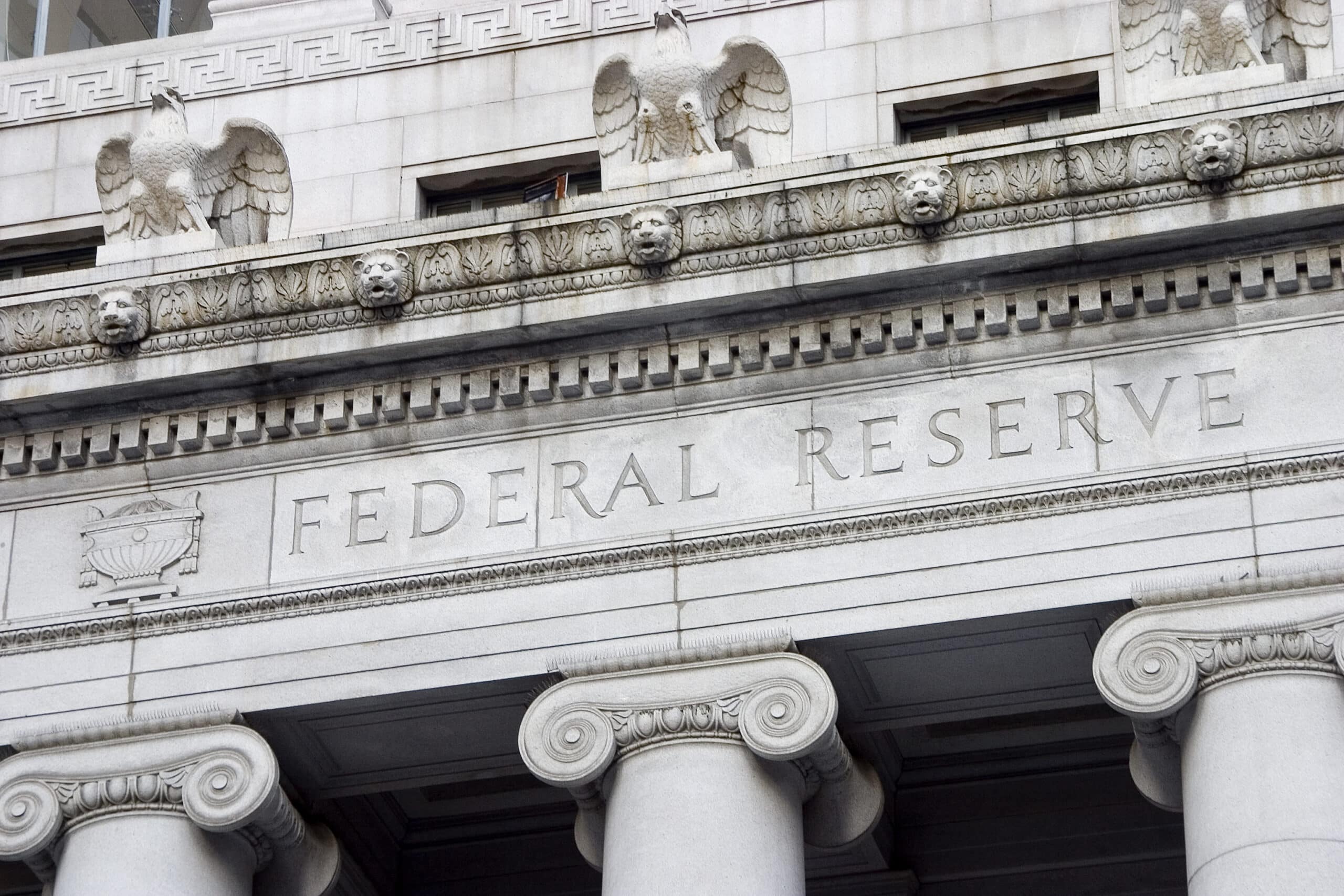Fiat in talks over $6.8 billion Italian state-backed loan
Fiat Chrysler Automobiles NV and Italy’s Intesa Sanpaolo SpA are negotiating a state-backed credit line of as much as 6.3 billion euros ($6.8 billion) in Europe’s biggest government-guaranteed financing for a carmaker since the coronavirus pandemic.
Italy’s top lender would lead a three-year loan facility to help finance the manufacturer’s business in the country, Fiat Chrysler said in a statement. Sace SpA, Italy’s trade-credit insurer, will guarantee 80% of the amount in a mechanism that would need approval by the Finance Ministry. Bloomberg reported the talks on Friday.
Fiat Chrysler shares rose 3.1% as of 9:51 a.m in Milan on Monday, while its 3.75% notes due in 2024 were little changed at 100.4 cents on the euro.
Carmaking is among industries that have been hit hardest by the Covid-19 crisis, which forced factory stoppages and crippled sales in markets from China and Europe to the U.S. Fiat Chrysler burned through $5.5 billion in the first quarter. The Italian-American company and French peer PSA Group last week scrapped the 1.1 billion-euro dividends that each agreed to pay as part of their 2019 merger agreement.
The financing would “provide further support to some 10,000 small and medium enterprises in the automotive supply chain in Italy following the reopening of the company’s Italian plants beginning at the end of April,” Fiat Chrysler said in its statement late Saturday.
Companies worldwide have borrowed almost $600 billion since late March to bolster their balance sheets. But no sector has been more aggressive than the auto industry, which has tapped banks for $100 billion by either making drawdowns from existing facilities or seeking new loans.
General Motors Co. and Ford Motor Co. have tapped credit lines to stock up on billions of dollars in cash. Last month, Daimler AG secured a 12 billion-euro credit line and Renault SA struck a 5 billion-euro loan guarantee deal with the French state.
Governments across Europe have provided support for over 22 billion euros in corporate loan facilities through mid-May.

Fiat Chrysler has raised almost 10 billion euros to help it weather the pandemic. Earlier, it took out a new, 3.5 billion-euro loan and drew down 6.25 billion euros from a revolving facility. Separately, the company is planning to repay part of the facility via a bond sale of as much as 1 billion euros, people familiar with the matter said last week.
Fiat, which stands for “Fabbrica Italiana Automobili Torino,” or Italian factory based in Turin, has faced criticism since shifting its center of gravity out of Italy following its merger with Chrysler. The carmaker in 2014 moved its legal headquarters to the Netherlands and its tax residence to the U.K.
The new credit line is now attracting renewed scrutiny by politicians and labor unions. Andrea Orlando, Democratic Party’s deputy secretary and former Justice Minister under Matteo Renzi and Paolo Gentiloni’s governments, has called for the relocation of the carmaker’s headquarters back to Italy.
Roberto Di Maulo, head of the Fismic labor union, said the lack of direct financial support by Italy’s government has forced Fiat Chrysler to seek the bank loan. Having offered support for businesses such as bikes and scooters, Italy should now focus on the much bigger automotive sector, said Marco Bentivogli, leader of the Fim Cisl union.
While Fiat Chrysler’s most profitable operations are in the U.S., carmaking remains a key part of the Italian industry, accounting about 6% of the country’s economy and about 7% of employment in the manufacturing sector.
At a press conference on Saturday, Prime Minister Giuseppe Conte said Fiat is entitled to apply for a state-backed loan despite being headquartered abroad. “We are speaking about Italian factories that give work to a lot of Italian employees,” he said.
In Italy, Fiat employs about 55,000 workers at 16 plants and 26 research and development sites. Some 200,000 jobs at 5,500 suppliers are linked to Fiat’s local operations.
–With assistance from Jim Silver, Ross Larsen, Sonia Sirletti, Jacqueline Poh and Tommaso Ebhardt.
–By Daniele Lepido (Bloomberg)
















